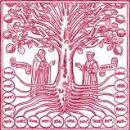
 |
| Issue 3/2016 |
Recent Research Topics |
Education Can Account for the East Asian MiracleWhy are people in East Asia about nine times as prosperous as their grandparents, but people in Latin America only two and a half times as theirs? In an article recently published in Science, Ifo research professor Eric Hanushek from Stanford University and Ludger Woessmann, head of the Ifo Center for the Economics of Education, argue that the answer to both growth puzzles lies in the great differences in the math and science achievement of the populations. For this reason, policy-makers should focus on the quality of schools. more... |

|
Integration through Education: Towards a Realistic Refugee PolicyEducation in the form of language skills and qualifications is key to the integration of refugees into the German labor market and thus into society. Ludger Woessmann argues that integration will only succeed if policy is based on realistic assumptions about the education and skill levels of refugees. Overall, the current refugees are unlikely to meet the demand for skilled labor. Therefore, pragmatic solutions must be found. In the case of refugee children, priority must be given to a wide distribution across schools and to rapid inclusion into normal classrooms. more (in German)... |

|
Where Skilled Migrants EmigrateWhere do high-skilled Germans go when they emigrate? In a new study, Jens Ruhose from the Ifo Center for the Economics of Education, together with Matthias Parey (University of Essex), Fabian Waldinger (University of Warwick), and Nicolai Netz (German Centre for Higher Education Research and Science Studies), shows that income inequality in the target country is an important determinant. Emigrants who have a higher income potential compared to those who remain in Germany tend to migrate to countries with greater inequality. Conversely, emigrants with lower income potential tend to migrate to countries with lower inequality. The United States tends to attract particularly Germans with high income potential in STEM fields. more... |

|
Expanding Public Child Care Increases Mothers’ Labor SupplyThe legal entitlement to a place in kindergarten, introduced in Germany in 1996, resulted in a significant expansion of preschool attendance of three and four year olds. But did the reform also increase the participation of mothers in the labor market? This is the topic of a paper published in the Journal of Public Economics that Martin Schlotter wrote during his time at the Ifo Center for the Economics of Education as part of the Ph.D. thesis, together with Ifo research professor Stefan Bauernschuster from the University of Passau. They find that the expansion of public child care helped to reconcile work with family life and thus increased maternal employment. more... |

|
How Americans and Germans Think about their SchoolsWhat do citizens in Germany and the United States think about their schools and their school policies? Opinion surveys conducted in the two countries by the Ifo Center for the Economics of Education and the Program for Education Policy and Governance at Harvard University show similarities and differences in public opinion between the two countries. more... |

|
Teacher Knowledge and the African Skill TragedyDespite attending school for several years, most students in Sub-Saharan African countries learn very little. How could this be changed? In a recent study, Marc Piopiunik and Simon Wiederhold from the Ifo Center for the Economics of Education, together with Jan Bietenbeck from Lund University, show that better teacher subject knowledge would increase student achievement significantly, especially if textbooks are available for instruction. more... |

|
| Back to top | |
A European Perspective: EENEE | |
|
The European Expert Network on the Economics of Education (EENEE) has published two new EENEE Analytical Reports, one on student debt and the other on incentives to enhance teaching quality: Elena Del Rey and Ioana Schiopu: Student Debt in Selected Countries, EENEE Analytical Report 25 Daniel Münich and Steven Rivkin: Analysis of Incentives to Raise the Quality of Instruction, EENEE Analytical Report 26 |

|
|
There is also a new EENEE Policy Brief – a two-page spotlight on a key policy issue – on the topic of school size: 5/2015: Maria Knoth Humlum and Nina Smith: Does School Size Matter for School Quality? | |
| Back to top | |
In the English News |
The Migrant Crisis – German FlexibilityThe Economist quotes Ludger Woessmann on the limits of separate “welcome classes” for refugee children. more... |
In the German News |
Education – What Else?A portrait of Ludger Woessmann in the Süddeutsche Zeitung in the series “24 German Economists that Make a Difference”. more (in German)... |
Education Creates ProsperityAn extensive contribution by Ludger Woessmann in the Neue Zürcher Zeitung about the key importance of education for long-term economic growth and success on the labor market. more (in German)... |
The Knowledge Treasure of NationsThe TV program ARD alpha in its series alpha Forum has aired a conversation with Ludger Woessmann on the role of education for prosperity internationally, PISA performance, and high-quality education. more (in German)... |
Two Thirds Can Hardly Read and WriteAn interview with Ludger Woessmann in Die Zeit about the educational level of refugees and the resulting political consequences. more (in German)... |
How Can the Integration of Refugees Succeed?Ludger Woessmann is interviewed in the ARD TV program Monitor and in the ZDF program Berlin direkt on how the integration of refugees can succeed. more (in German)... |
Refugees Tend to Compete with Earlier ImmigrantsInterview with Jens Ruhose on the integration prospects of refugees in the labor market in the Austrian newspaper Kurier. more (in German)... |
Integration of Refugees in the Labor MarketThe Wirtschaftswoche quotes a study by Ludger Woessmann on skills and labor-market opportunities of refugees. more (in German)... And an interview with Ludger Woessmann in Deutschlandfunk on the same topic. more (in German)... |
Short Apprenticeships for Refugees?Spiegel online reports on the responses from employer associations and trade unions to the Ifo proposal for a rapid qualification of refugees. more (in German)... |
How the University of the Future Will TickThe Frankfurter Allgemeine Zeitung reports on a panel discussion with Ludger Woessmann on the impact of demographic change on the university of the future. more (in German)... |
It’s Thinking that MattersThe Frankfurter Allgemeine Zeitung reviews the book “The Knowledge Capital of Nations” by Eric Hanushek and Ludger Woessmann. more (in German)... |
| Back to top |
Selected Events | |
Workshop “Institutions, Culture, and Long-Run Development”Leading international scholars gathered for a workshop at the Center for Advanced Studies of the Ludwig-Maximilians-University of Munich on 13 and 14 November 2015 organized by Davide Cantoni, Uwe Sunde, and Ludger Woessmann to discuss institutional frameworks and cultural and historical factors as fundamental causes of long-term development. more... |
 |
| Back to top | |
Recent Publications |
Articles in Refereed JournalsStefan Bauernschuster and Martin Schlotter, “Public Child Care and Mothers' Labor Supply: Evidence from two Quasi-Experiments”, Journal of Public Economics 123: 1-16, 2015.Eric A. Hanushek and Ludger Woessmann, “Knowledge Capital, Growth, and the East Asian Miracle”, Science 351 (6271): 344-345, 2016. Philipp Lergetporer, Silvia Angerer, Daniela Glätzle-Rützler and Matthias Sutter, “How to Measure Time Preferences in Children – A Comparison of Two Methods”, Journal of the Economics Science Association 1(2): 158-169, 2015. |
Working PapersJan Bietenbeck, Marc Piopiunik and Simon Wiederhold, “Africa’s Skill Tragedy: Does Teachers’ Lack of Knowledge Lead to Low Student Performance?”, CESifo Working Paper 5470, August 2015.Eric A. Hanushek, Jens Ruhose and Ludger Woessmann, “Economic Gains for U.S. States from Educational Reform”, NBER Working Paper 21770 and CESifo Working Paper 5662, December 2015. Michael B. Henderson, Philipp Lergetporer, Paul E. Peterson, Katharina Werner, Martin R. West and Ludger Woessmann, “Is Seeing Believing? How Americans and Germans Think about their Schools”, Harvard University, Program on Education Policy and Governance, PEPG Working Paper 15-02, August 2015. Ingo E. Isphording, Marc Piopiunik and Núria Rodríguez-Planas, “Speaking in Numbers: The Effect of Reading Performance on Math Performance among Immigrants”, CESifo Working Paper 5589, November 2015. Matthias Parey, Jens Ruhose, Fabian Waldinger and Nicolai Netz, “The Selection of High-Skilled Migrants”, IZA Discussion Paper 9164, June 2015. Matthias Sutter, Silvia Angerer, Daniela Rützler and Philipp Lergetporer, “The Effect of Language on Economic Behavior: Experimental Evidence from Children's Intertemporal Choices”, CESifo Working Paper 5532, September 2015. |
| Back to top |
Imprint | |
|
The Newsletter of the Ifo Center for the Economics of Education is a free e-mail service which informs about new research results, publications, events, and more from the Ifo Center for the Economics of Education. You can download previous issues of the newsletter in the archive. Subscribe | Unsubscribe | Feedback Your data will be stored internally by CESifo Group for dispatch of the Newsletter of the Ifo Center for the Economics of Education. It will be treated confidentially and will not be handed on to third parties. For more information see Privacy Policy. You can also visit the website of the Ifo Center for the Economics of Education. Or send us an e-mail at bildungsnews@ifo.de. Copyright © Ifo Institute 2016. Status: June 2016 Editor: Ifo Center for the Economics of Education, Ifo Institute – Leibniz Institute for Economic Research at the University of Munich, Poschingerstrasse 5, 81679 Munich
| |